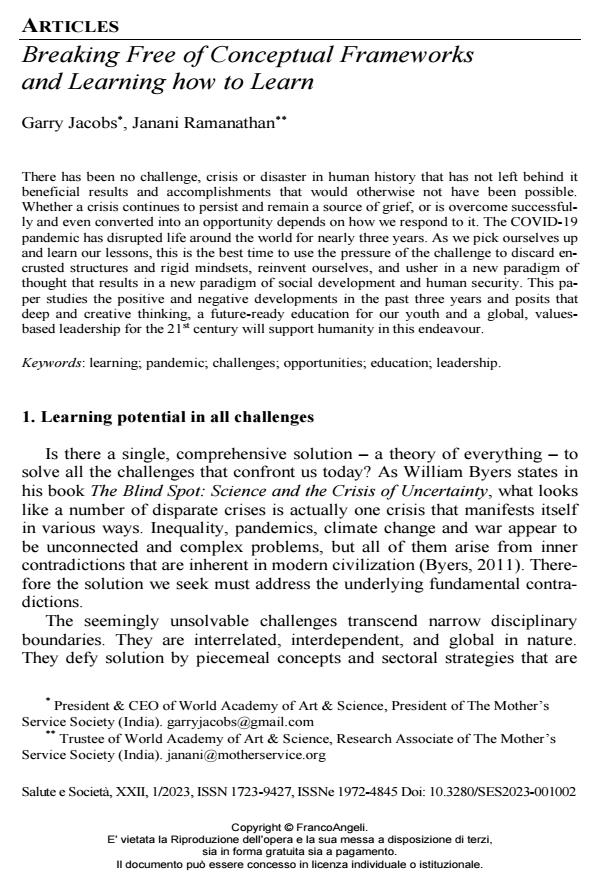Breaking Free of Conceptual Frameworks and Learning how to Learn
Journal title SALUTE E SOCIETÀ
Author/s Garry Jacobs, Janani Ramanathan
Publishing Year 2023 Issue 2023/1
Language English Pages 14 P. 13-26 File size 385 KB
DOI 10.3280/SES2023-001002
DOI is like a bar code for intellectual property: to have more infomation
click here
Below, you can see the article first page
If you want to buy this article in PDF format, you can do it, following the instructions to buy download credits

FrancoAngeli is member of Publishers International Linking Association, Inc (PILA), a not-for-profit association which run the CrossRef service enabling links to and from online scholarly content.
There has been no challenge, crisis or disaster in human history that has not left behind it ben-eficial results and accomplishments that would otherwise not have been possible. Whether a crisis continues to persist and remain a source of grief, or is overcome successfully and even converted into an opportunity depends on how we respond to it. The COVID-19 pandemic has disrupted life around the world for nearly three years. As we pick ourselves up and learn our lessons, this is the best time to use the pressure of the challenge to discard encrusted struc-tures and rigid mindsets, reinvent ourselves, and usher in a new paradigm of thought that results in a new paradigm of social development and human security. This paper studies the pos-itive and negative developments in the past three years and posits that deep and creative thinking, a future-ready education for our youth and a global, values-based leadership for the 21st century will support humanity in this endeavour.
Keywords: learning; pandemic; challenges; opportunities; education; leadership.
Garry Jacobs, Janani Ramanathan, Breaking Free of Conceptual Frameworks and Learning how to Learn in "SALUTE E SOCIETÀ" 1/2023, pp 13-26, DOI: 10.3280/SES2023-001002